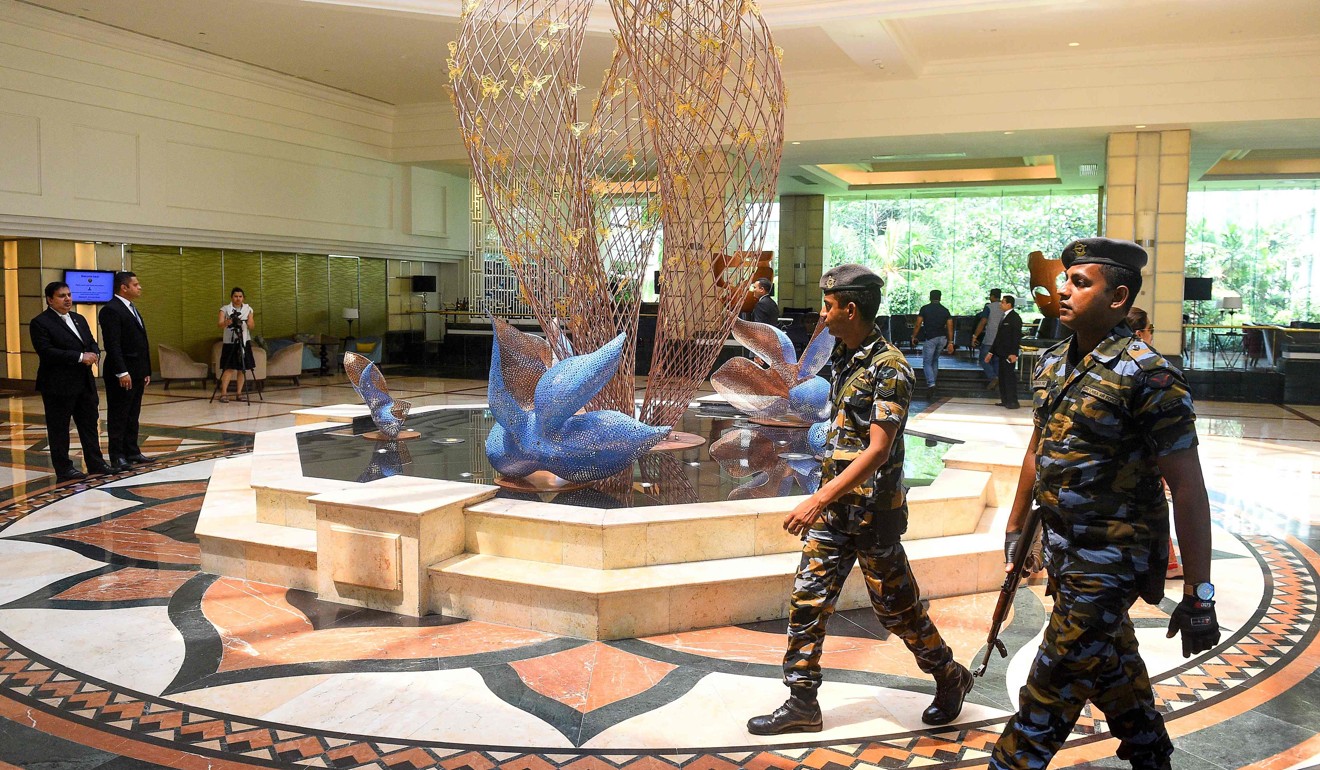
How Colombo nightlife died after Sri Lanka terrorist attacks, and the bar owners confident it will return
- Since the deadly church and hotel bombings, the once crowded clubs, restaurants and bars of the nation’s capital have been empty
- Owners face lean times, but see the island nation as resilient. ‘We fought 30 years of war, we survived that. I believe we can survive anything,’ says one
Before jihadi bombers targeted Sri Lanka in deadly Easter attacks, Rangana Wijesuriya used to party until the small hours in the restaurants, bars and clubs of downtown Colombo.
“It is usually really crowded and really noisy here. We were shocked to see that it is really empty,” says Wijesuriya, 26.
“Usually when we come, we stay until morning and drink and go,” she says.
Sri Lanka remains on high alert after bombers targeted three hotels and churches in attacks claimed by Islamic State.
In fact, even though it’s only just gone 8pm, the street is such a shadow of its former self that Wijesuriya is thinking of calling it a night.

The pedestrianised Park Street Mews used to be heaving, its many bars and chic restaurants the place to be seen.
Before, party-goers would have to elbow through 700 or 800 people on a Friday night, now there are barely 20 people on the street. The tapas bar has not bothered hiring the usual band.
Every Friday and Saturday night Harpo Gooneratne, a larger-than-life bar and restaurant owner, does the rounds of the places he runs in his chauffeur-driven car.

“Colombo’s nightlife, for the last couple of years, has been picking up because the tourists arrivals are getting bigger and bigger,” says Gooneratne.
“There were more bars, more restaurants opening … Colombo’s nightlife was on the up,” he says.
And he is hopeful that things will bounce back.

“It has taken a dip but we are positive that it is going to kick back and it is going to happen. The locals are going to be coming out as soon as possible,” he predicts.
At the entrance to Park Street Mews, security guards check visitors’ bags for explosives, and concrete blocks have been installed to prevent any attacks with vehicles.
A French restaurant in the street, the Cafe Francais, used to refuse reservations after 10pm, and some clientele used to send their drivers to claim one of the coveted tables.

Now sales are down by half and its manager Jean-Charles Toussaint, originally from the southern French city of Montpellier, expects things to remain dire for a while.
“The situation isn’t great. But it’s understandable… Things will have to get going again slowly,” says Toussaint.
Natalie Jayasuria, owner of the Flamingo House building, where there is a bar, restaurant and a club, agrees.
“Sri Lanka is a resilient nation. We fought 30 years of war, we survived that. I believe we can survive anything,” she says.

.png?itok=arIb17P0)